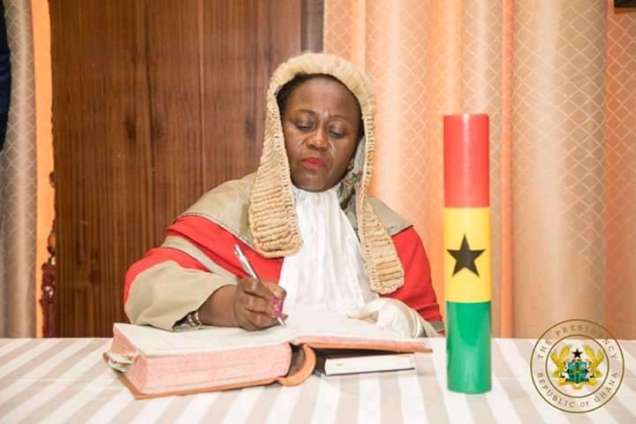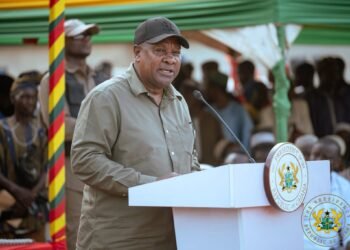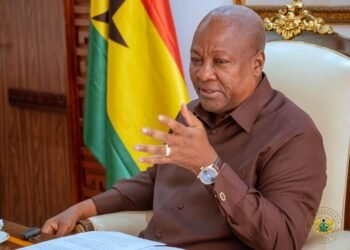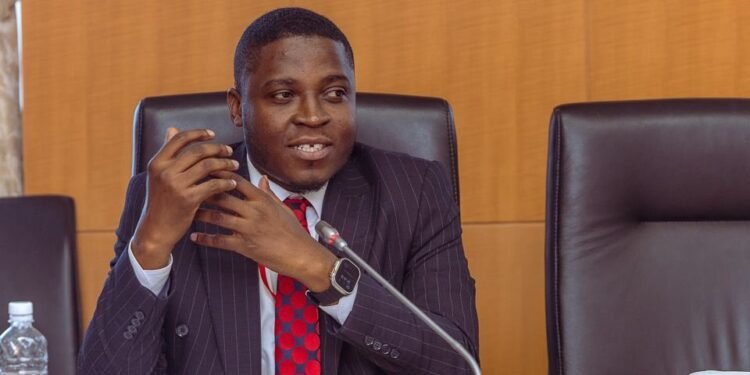The debate over judicial accountability has intensified, with suspended Chief Justice Gertrude Torkornoo coming under scrutiny after constitutional law expert Prof. Stephen Kwaku Asare flagged what he considered a significant constitutional violation.
At the heart of the controversy is the alleged violation of Article 146(8) of the 1992 Constitution, which mandates that all proceedings concerning the removal of justices be conducted in camera—that is, privately.
The issue arose following a public statement made by the suspended Chief Justice about the process of her removal.
Prof. Asare maintained that Article 146(8) of the Constitution requires all proceedings under that provision to be conducted privately and emphasized that this requirement is mandatory, leaving no room for discretion—even for the Chief Justice.
“This provision is unambiguous (see Agyei Twum). It does not vest discretion in any person, including the Chief Justice. That such proceedings be conducted privately is a mandatory constitutional directive, designed to protect the integrity of the process, shield the judiciary from public pressure, and ensure procedural fairness.
“As the apex judicial officer of the Republic, the Chief Justice is under a heightened obligation to uphold and comply with every provision of the Constitution.”
Prof. Stephen Kwaku Asare

Accordingly, Prof. Asare argued that making a public statement about an active Article 146 process—regardless of how it is communicated—constitutes a deliberate breach of Article 146(8).
He referenced Article 1(2) of the Constitution, which declares that any law or action conflicting with the Constitution is void.
He also highlighted Article 2(1), which empowers any citizen to bring a case before the Supreme Court in instances of constitutional violations.
Suspended Chief Justice’s Public Comment Challenged
Prof. Kwaku Asare further emphasized that disregarding Article 146(8) should not be viewed as a simple procedural oversight, but as a serious constitutional violation subject to enforcement through judicial review.
He explained that Supreme Court directives and constitutional provisions apply equally to all individuals, and any failure to hold proceedings in camera, as mandated, amounts to contempt and carries legal consequences.
He maintained that the suspended Chief Justice, like every citizen, is not exempt from the constitutional duties imposed by the law.
He stressed that this violation could itself be grounds for removal. Article 146(1) provides for the removal of the Chief Justice on grounds of “stated misbehaviour or incompetence.”
Prof. Asare contended that defying Article 146(8), particularly when the process in question concerns her own potential removal, qualifies as “a clear and self-contained instance of stated misbehaviour.”
He clarified that this type of misconduct need not be listed in the initial petition for it to be actionable.
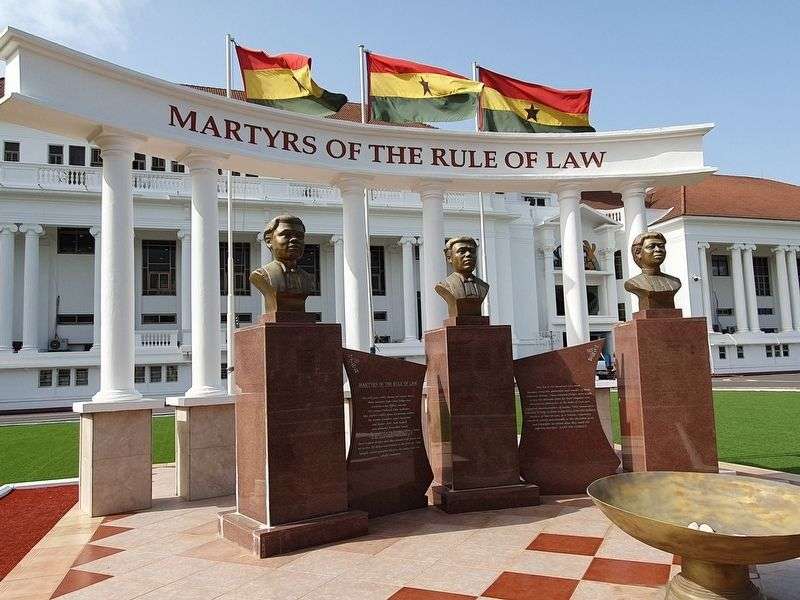
“The committee established under Article 146 functions as a quasi-judicial body of inquiry. It is empowered to examine relevant conduct that arises during the course of the proceedings, particularly where such conduct bears directly on the Chief Justice’s respect for constitutional obligations, impartiality, and fitness for office.”
Prof. Stephen Kwaku Asare
Referencing Articles 146(3)–(5), Prof. Asare said the Constitution mandates an investigative process, not simply a review of a static petition.
He warned that limiting the inquiry only to the initial petition would allow further breaches committed during the process to go unpunished.
He also pointed to the judicial oath of office sworn by the suspended Chief Justice, which includes a pledge to “uphold, preserve, protect and defend the Constitution and laws of the Republic of Ghana.”
A “wilful and public defiance of Article 146(8),” he argued, constitutes not only misconduct but also a violation of that solemn oath. “It strikes at the moral and constitutional foundation on which judicial authority rests,” he said.
As such, Prof. Asare maintained that the Chief Justice’s public remarks should be regarded as a distinct and valid basis for removal from office, even if they were not part of the original petition.
He argued that such conduct represents a serious violation that warrants independent scrutiny within the ongoing proceedings.
Constitutional Equality Demands Accountability For All
Underscoring the seriousness of the matter, Prof. Asare cited Article 69(1)(a) of the Constitution, which allows for the removal of a President for wilfully violating their oath or any constitutional provision.
“If the Constitution permits the removal of a President… it cannot be argued that the Chief Justice… should be held to a lower standard. The principle of constitutional equality and institutional accountability demands no less.”
Prof. Stephen Kwaku Asare
He described the Chief Justice’s action as a “constitutional offence” that undermines procedural fairness, judicial independence, and public trust.
If left unaddressed, he warned, it could normalize selective constitutional compliance among the judiciary’s highest ranks.
Prof. Asare also dismissed suggestions that the Supreme Court is targeting the Chief Justice, emphasizing that every individual is equally bound by the Constitution and its limits.
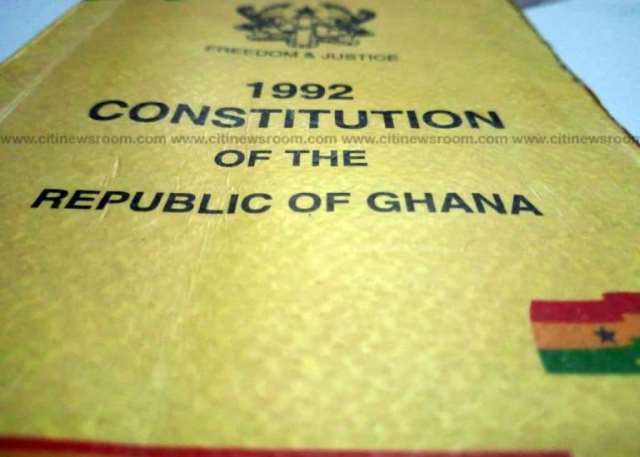
He noted that opposition to judicial processes does not entitle anyone to disregard constitutional obligations.
“If the Chief Justice is permitted to violate Article 146(8), we must ask: are constitutional provisions still binding? Are Supreme Court orders still authoritative? If not, then we are no longer a nation governed by law, but a system of arbitrary discretion.”
Prof. Stephen Kwaku Asare
He cautioned that the nation faces a clear choice between upholding constitutional rule or allowing impunity to take root—there is no room for both.
Echoing this sentiment, South Dayi MP and lawyer Nelson-Rockson Dafeamekpor emphasized that those who feel wronged by a court or quasi-judicial decision must seek redress through proper legal channels.
He pointed out that appeals should be filed in court or, in the case of administrative bodies, addressed through judicial review—referring to the precedent set in Boyefio vrs. NTHC [1997-98] SC.
“This presser by our beleaguered CJ is contemptuous of the Supreme Court as she presently has a case pending before the Court as well as contumacious of the powers of the Article 146 Pwamang Committee.”
Hon. Nelson-Rockson Dafeamekpor
As the situation develops, constitutional scholars, legal experts, and members of the public are paying close attention.
The eventual resolution could significantly influence how judicial accountability is interpreted and may shape the trajectory of Ghana’s adherence to constitutional supremacy and the rule of law in future governance.
READ ALSO: Trump Meets With Zelenskyy On NATO Summit Sidelines

